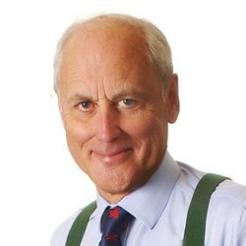Lord Hodgson has said this week that “the correlation between trustees who have served between 10 and 20 years and under-performing charities is very great indeed” and that trustee boards’ structures often lock out young people.
Lord Hodgson was speaking at Russam GMS’s annual civil society reception in London where he spoke about the progress made since the publication of his review into the Charities Act 2006 in July 2012.
Lord Hodgson opened his speech saying, “The quality of leadership at the executive or trustee level is absolutely critical to the sector.” He explained that during his review he saw quite a lot of charities that really needed a boost to their trustee capability.
He said: “Too often the correlation between trustees who have served for 10, 15 or 20 years and under-performing charities is very great indeed.
“Also if charities have their trustees meetings three times a year in the middle of the week at lunchtime in the golf club, it isn’t surprising that young people can’t join them.”
Commenting on his review of the Charities Act, Lord Hodgson focused on three areas, clarity around trustees duties regarding social investment, fundraising and the Charity Commission.
Discussing the issue of trustee duties and social investment Lord Hodgson said, “It is unsustainable that trustees of a charitable trust should have the same duties as trustees of an ordinary trust and the law makes no distinction. I think this has been a great inhibitor preventing trustees being able to help and develop in the charity sector, particularly in the area of social investment and particularly in areas where you have payment by results.”
He said that the area of permanent endowments was complicated and “terrifying” for trustees. The Law Commission is undertaking a consultation which closes on 18th June looking at social investment and permanent endowments.
Hodgson said the Law Commission was seeking a “broad consensus” and urged people to participate if they felt the “time is right to push forward on the front of social investment and make trustee duties clearer”.
Public need one point of reference for fundraising
In his review of the Charities Act 2006, Hodgson recommended that the sector address the "confused self-regulatory landscape" around fundraising.
He said that progress in fundraising was “coming along,” but the public still don’t understand the ‘difficult structure’ of fundraising in the UK which involves The Institute of Fundraising, the Fundraising Standards Board and the Public Fundraising Regulatory Association.
He said the public need a single point of reference - one place to go to complain about fundraising, with one email address and one telephone number.
Small charities exempt from regulation
Hodgson also spoke about the Charity Commission warning that there is “no way” they can really regulate 160,000 registered charities. He suggested that small charities should not be subject to Charity Commission regulation, saying that the Charity Commission should make it clear to the public that small charities will publish their accounts on the website and let them make their own judgments about them.
He reiterated his controversial view that charities need to state they are ‘small’ – in front of their charity number. He also said that, “Charities should also be able to register online to get their charity number quickly and raise funds”, explaining that many new charities are in a Catch 22 situation - struggling to get going and raise funds because they don’t have a charity number. He said that technology could bridge this gap.
Stephen Brooker, chairman of Russam GMS’s charities and not-for-profit practice, closed the event thanking Lord Hodgson and ‘strongly urging’ executives and trustees to participate in the Law Commission consultation and not leave it too late, warning that it would be ‘another 25 years’ before they get another chance to have their say.









